Have you ever wondered how to attract more targeted traffic to your website and improve its visibility in organic search rankings?
Keyword research is the key to unlocking the potential of your SEO strategy. By understanding the importance of keywords and incorporating them strategically throughout your website, you can drive relevant traffic and boost your online presence.
Keyword research is a crucial process that involves identifying the primary keywords, exploring keyword difficulty, and finding relevant variations such as tail keywords. It helps you discover what particular keywords people are searching for when looking for information related to your parent topic or industry.
By incorporating these keywords into your content, you can optimize it for search engines and increase its chances of ranking higher in search results.
Think of keyword research as the starting point of an exciting chapter in your website’s journey toward success. It’s like uncovering hidden treasures – each keyword acts as a valuable clue that guides users to find exactly what they’re looking for.
So, are you ready to dive into the world of keyword research? Let’s explore how this process can enhance your SEO efforts and bring more visibility to your website.
- What is Keyword Research?
- Importance of Keyword Research for SEO
- Understanding Search Intent for Effective Keyword Selection
- Analyzing Competitors’ Keyword Rankings
- Utilizing Google Search Console for Keyword Research
- Leveraging Google and YouTube Suggestions for Keyword Ideas
- Advanced Tips and Strategies for Effective Keyword Research
- Exploring the Best Free Keyword Research Tools
- Additional FAQs on Keyword Research
- Conclusion: Key Takeaways from Keyword Research
What is Keyword Research?
Keyword research is an essential process in the world of digital marketing. It involves finding relevant search terms that can help optimize content for better visibility and attract the right audience.
By understanding user search behavior and identifying popular yet low-competition keywords, businesses can effectively target their audience’s needs.
The first step in keyword research is to identify the target keyword or topic. This is the main focus of your content and what you want to rank for in search engine results.
Once you have determined this, it’s time to delve deeper into finding related keywords that align with your target keyword.
One crucial aspect of keyword research is understanding search demand. By analyzing search volume data, you can gauge how frequently users are searching for specific keywords or phrases. This information helps you prioritize keywords based on their popularity and potential reach.
In addition to popularity, considering the level of competition for a keyword is equally important.
Low-competition keywords provide an opportunity to rank higher in search results without facing fierce competition from other websites vying for the same spot.
On the other hand, targeting highly competitive keywords may require more effort and resources.
To conduct effective keyword research, various tools are available that provide insights into search volume, competition levels, and related keywords. These tools enable marketers to make data-driven decisions when selecting keywords to optimize their content.
Understanding user search behavior is another vital aspect of keyword research.
By analyzing user intent behind specific searches, businesses can tailor their content to meet those needs effectively.
For instance, if users often search for “best budget smartphones,” creating content around affordable smartphone options would likely attract relevant traffic.
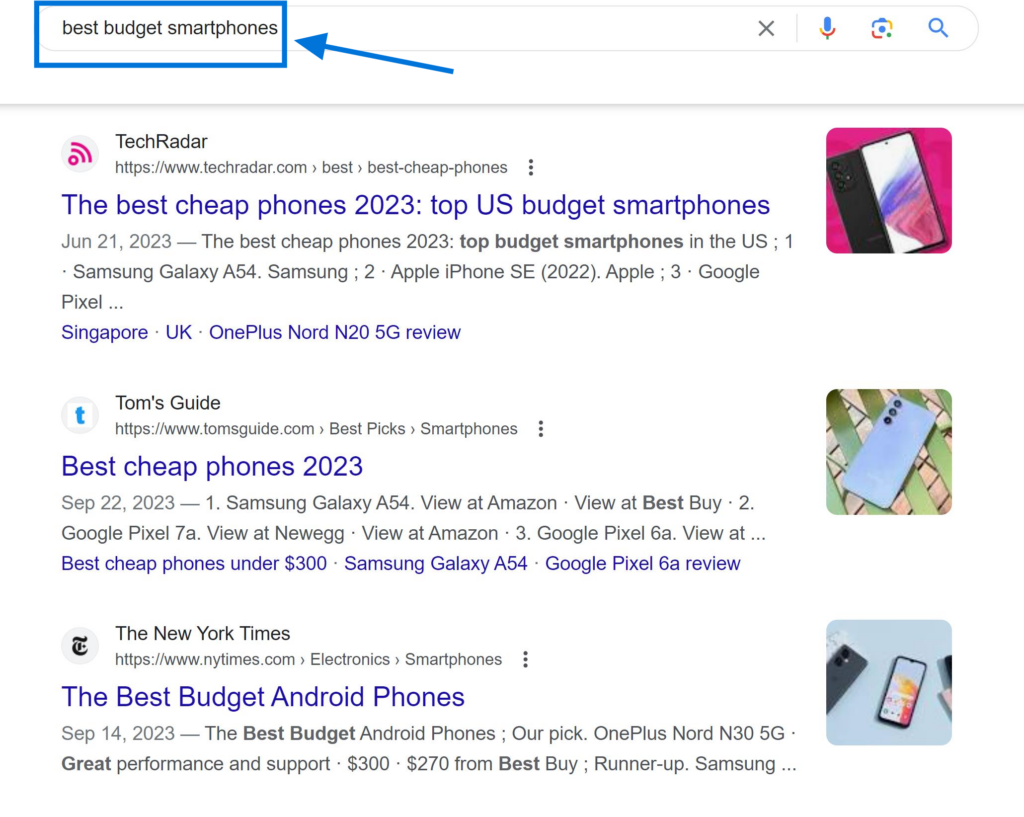
Optimizing content based on thorough keyword research ensures that your website appears prominently in search engine results pages (SERPs) when users enter relevant queries.
By strategically incorporating targeted keywords into titles, headings, meta descriptions, and throughout your content naturally, you increase the chances of attracting organic traffic from interested users.
Importance of Keyword Research for SEO
Keyword research is an important aspect of search engine optimization (SEO) that can significantly impact the success of your website.
By identifying and targeting the right keywords, you can increase website traffic, boost search engine rankings, target specific audience segments, and guide content creation and optimization.
Increases Website Traffic and Conversions
Effective keyword research helps drive organic traffic to your website. By understanding what terms and phrases people are searching for in relation to your industry or niche, you can optimize your content with those keywords.
As a result, when users search for relevant information or products/services related to your business, your website has a higher chance of appearing in the search results.
When your website ranks higher in search engine results pages (SERPs), it attracts more clicks from users. This increased visibility leads to an increase in targeted traffic to your site.
The key here is to focus on long-tail keywords – specific phrases that have lower search volumes but higher intent. While they may not generate as much traffic individually, they often have better conversion rates due to their specificity.
Boosts Search Engine Rankings
Search engines rely on algorithms that analyze websites based on various factors, including keyword relevance.
When you conduct thorough keyword research and strategically incorporate those keywords into your website’s content, meta tags, headings, and URLs, you signal to search engines that your site is highly relevant to specific searches.
By optimizing for relevant keywords, you improve the chances of ranking higher in SERPs.
Higher rankings lead to increased visibility and credibility among users who tend to trust websites listed at the top of the results page more than those further down.
Targets Specific Audience Segments
Understanding your target audience is essential for effective marketing strategies.
Keyword research allows you to gain insights into what potential customers are searching for online.
By identifying their pain points, needs, desires, and preferences through keyword analysis, you can tailor your content specifically toward them.
Targeting specific audience segments through keyword research enables you to create content that resonates with their interests and addresses their problems. This not only helps attract the right visitors to your website but also increases the likelihood of converting them into customers or leads.
Guides Content Creation and Optimization
Keyword research serves as a roadmap for creating and optimizing your website’s content.
By identifying relevant keywords, you can develop high-quality, informative, and engaging content that aligns with what users are searching for.
Integrating keywords naturally throughout your content ensures that search engines understand the context and relevance of your pages. It helps you structure your content in a way that is easy to read and comprehend for both users and search engine crawlers.
Understanding Search Intent for Effective Keyword Selection
To conduct successful keyword research, it is crucial to delve into the searcher’s intent behind their query.
By understanding the purpose and motivation driving users to search for specific information, businesses can align their keywords with user needs and create relevant and valuable content.
Focus on the User’s Purpose Behind the Search Query
Searcher intent refers to the underlying objective or goal a user has when typing a query into a search engine. It is essential to decipher what users are looking for in order to provide them with the most helpful and appropriate content.
By analyzing the language used in search queries, businesses can gain insights into user intentions.
For instance, if someone searches for “best running shoes,” it indicates that they are likely in the market for purchasing new athletic footwear.
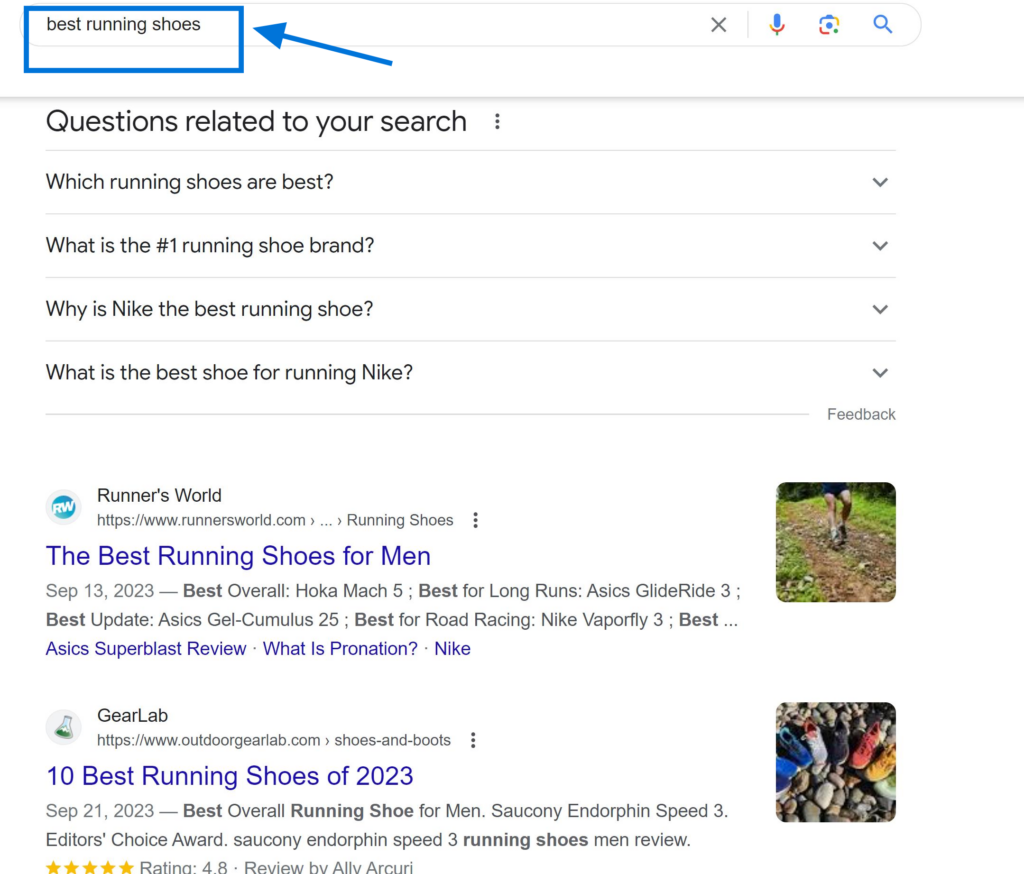
On the other hand, if someone searches for “how to tie shoelaces,” their intention is more informational rather than transactional.
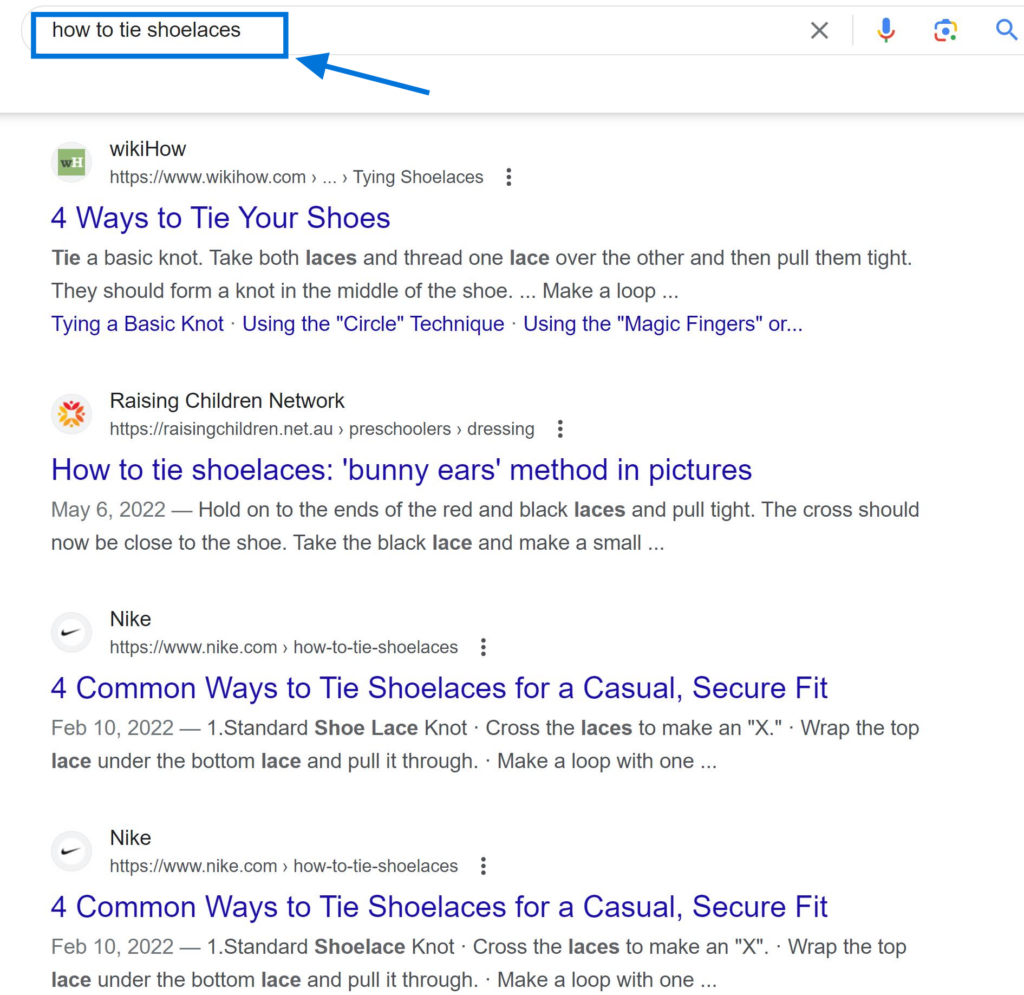
Differentiate Between Informational, Navigational, and Transactional Intent
Searcher intent generally falls into three main categories: informational, navigational, and transactional.
- Informational Intent: Users with informational intent seek answers or solutions to specific questions or problems. They may be looking for explanations, guides, tutorials, or tips related to a particular topic.
- Navigational Intent: Navigational intent involves users who are searching for a specific website or web page. They already know which site they want to visit but prefer using a search engine instead of directly entering the URL.
- Transactional Intent: Users with transactional intent have a clear intention of making a purchase or engaging in some form of online transaction. They might be comparing prices, reading product reviews, or searching for discounts before committing to a purchase.
By identifying which type of intent aligns with your target audience’s needs at different stages of their customer journey, you can tailor your keyword selection accordingly.
Align Keywords with User Needs
To effectively reach your target audience, it is crucial to align your keywords with their needs and intentions. Consider the following strategies:
- Conduct thorough keyword research using tools like Google Keyword Planner or Ahrefs to identify relevant keywords that match user intent.
- Use long-tail keywords that are more specific and reflective of user queries, as they often indicate higher purchase intent.
- Analyze search engine results pages (SERPs) for your target keywords to understand what type of content ranks well and resonates with users.
By focusing on aligning your keywords with user needs, you can improve the visibility of your content in search engine results and attract highly targeted traffic.
Analyzing Competitors’ Keyword Rankings
Analyzing competitors’ keyword rankings is a crucial aspect of effective keyword research. By identifying their top-ranking keywords, you can gain valuable insights into their SEO strategies and use this information to enhance your own keyword selection.
Monitoring the performance of these keywords over time allows you to stay ahead of the competition and make informed decisions for your website’s optimization.
One of the primary goals when analyzing competitors’ keyword rankings is to identify the specific keywords that are driving traffic and conversions for them. This process often involves conducting SERP analysis, where you examine the ranking pages on search engine results pages (SERPs) for relevant queries.
By studying these ranking pages, you can determine which keywords are most valuable in terms of visibility and organic traffic generation.
Furthermore, evaluating competitors’ ranking difficulty provides essential insights into how challenging it may be to achieve similar rankings for those keywords.
Understanding the competition level associated with each keyword helps you assess whether it’s worth investing time and effort into optimizing for those particular terms or if you should focus on less competitive alternatives instead.
To effectively analyze competitors’ keyword rankings, consider utilizing various metrics and tools available:
- Ranking Metrics: Look at factors such as average position, search volume, click-through rates (CTRs), and estimated organic traffic generated by each keyword. These metrics provide a comprehensive overview of the potential value associated with specific search terms.
- Difficulty Score: Many SEO tools offer a difficulty score that indicates how challenging it may be to rank for a particular keyword compared to others in your niche. A higher difficulty score suggests stronger competition, while a lower score implies easier opportunities for ranking success.
By leveraging competitor data obtained through thorough analysis, you can strategically optimize your own website’s content and improve its visibility in search engine results pages. Here are some key steps to follow:
- Identify Competitor Keywords: Use SEO tools like SEMrush or Ahrefs to identify the keywords your competitors are ranking for. Look for common themes or patterns that could indicate successful SEO strategies.
- Analyze Ranking Pages: Examine the content and structure of your competitors’ ranking pages. Identify the elements that make them effective, such as well-optimized title tags, relevant headings, and comprehensive content.
- Optimize Your Content: Incorporate insights gained from analyzing competitor rankings into your own keyword selection and content optimization efforts. Create high-quality, informative content that addresses user intent while targeting relevant keywords.
- Monitor Keyword Performance: Continuously track the performance of both your own and your competitors’ keywords over time. Keep an eye on any changes in rankings, search volume, or competition levels to adapt your strategy accordingly.
Utilizing Google Search Console for Keyword Research
Google Search Console is a powerful tool that can provide valuable insights into the performance of your website’s keywords.
By analyzing impressions, clicks, and average position of keywords, you can optimize your existing content and uncover new keyword ideas.
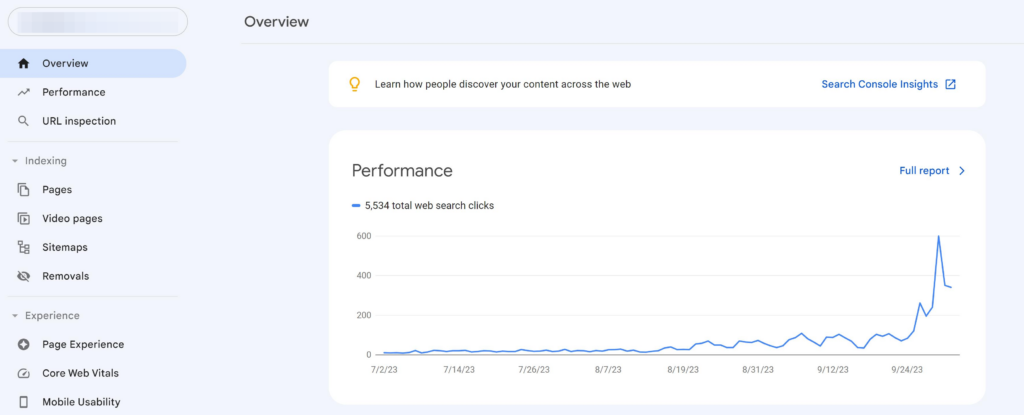
Gain Access to Valuable Keyword Data from Your Website.
One of the key benefits of using Google Search Console for keyword research is gaining access to valuable keyword data specific to your website. This data includes information about organic search traffic, search queries, and the average position of your website in search engine results pages (SERPs).
By understanding which keywords are driving traffic to your site and how well you are ranking for them, you can make informed decisions about optimizing your content.
Analyze Impressions, Clicks, and Average Position of Keywords
Once you have accessed the Google Search Console, navigate to the “Performance” section, where you will find detailed information about the performance of your keywords.
The “Queries” tab displays the search queries that users have used to find your site.
Here, you can see metrics such as impressions (the number of times your site appeared in search results), clicks (the number of times users clicked on your site), and average position (where your site ranks on average for each query).
By analyzing these metrics, you can identify which keywords are generating the most impressions and clicks. This information allows you to prioritize optimization efforts by focusing on high-performing keywords or identifying areas where improvements are needed.
Find Opportunities to Optimize Existing Content Based on Performance Metrics
With the insights provided by Google Search Console’s performance metrics, you can uncover opportunities to optimize existing content on your website. For example:
- Identify high-impression low-click queries: If a particular keyword has a high impression count but a low click-through rate (CTR), it may indicate that users are not finding your content engaging enough. Consider optimizing the meta title and description to make it more compelling and relevant.
- Improve average position for important keywords: If you notice that your website is ranking relatively low for certain keywords that are crucial for your business, you can focus on improving the optimization of those specific pages. This could involve refining the content, adding relevant internal and external links, or enhancing the page’s overall user experience.
Uncover New Keyword Ideas from “Search Analytics” Report
Another valuable feature of Google Search Console is the “Search Analytics” report.
This report provides insights into how often your site appears in search results for different queries. By reviewing this data, you can discover new keyword ideas that may be worth targeting in your content strategy.
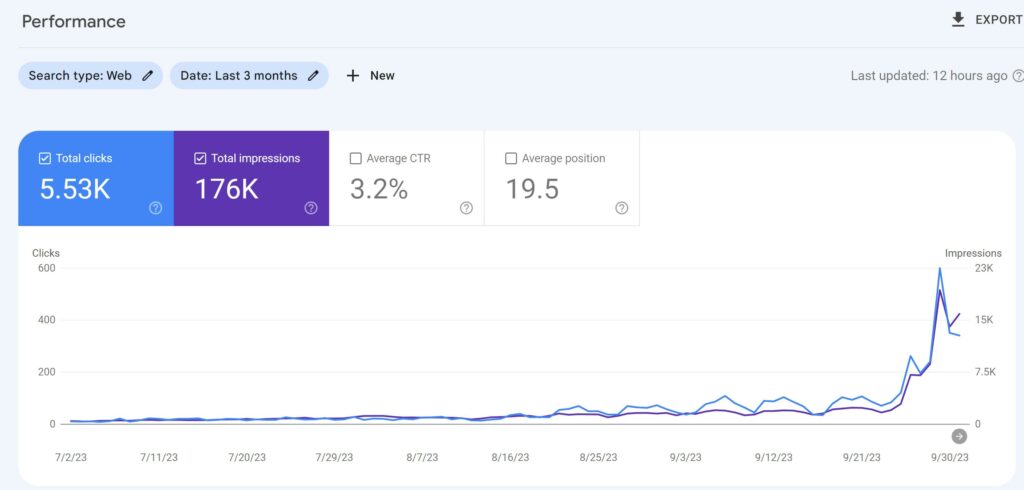
Leveraging Google and YouTube Suggestions for Keyword Ideas
Taking advantage of auto-suggestions in Google’s search bar is a powerful way to generate keyword ideas.
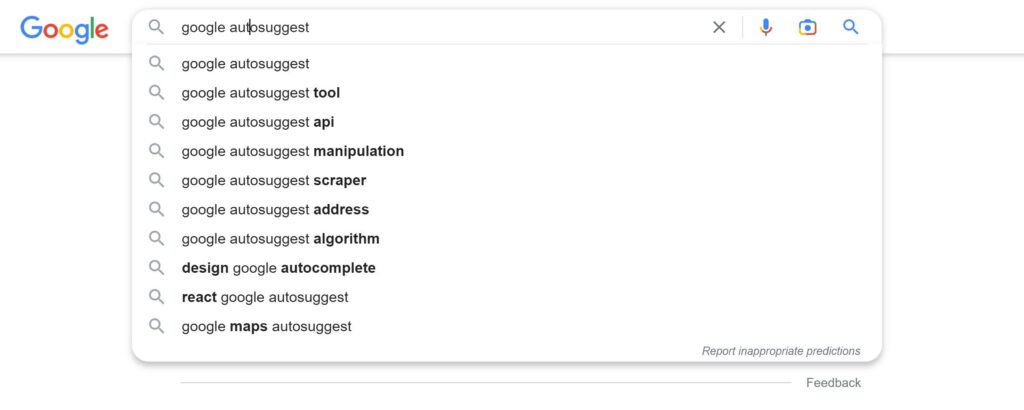
When you start typing a query into the search bar, Google provides a dropdown list of suggested searches based on what other users are commonly searching for. These keyword suggestions can give you valuable insights into what people are looking for and help you discover new keywords to target.
To find long-tail keyword variations, pay attention to the auto-suggestions that appear as you type your main keyword. These longer and more specific phrases can often have less competition and higher conversion rates.
For example, if your main keyword is “keyword research,” some long-tail variations may include “best keyword research tools” or “how to do effective keyword research“
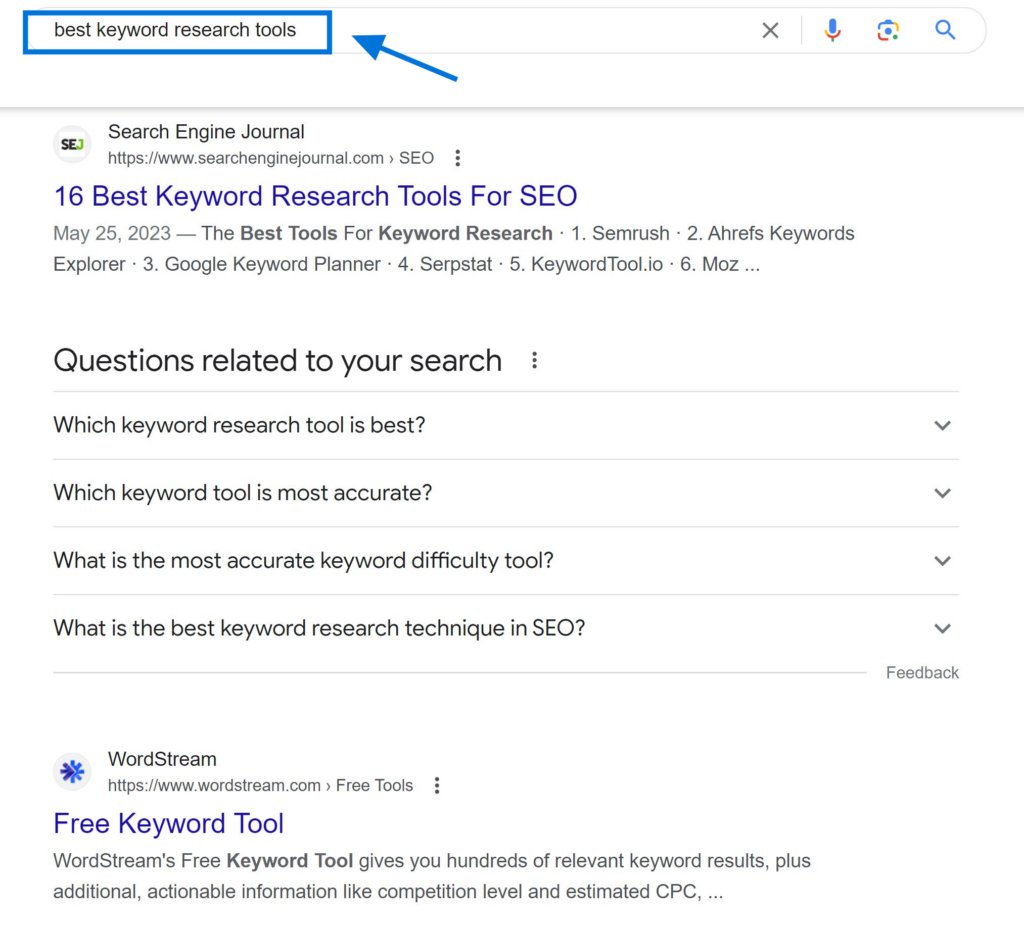
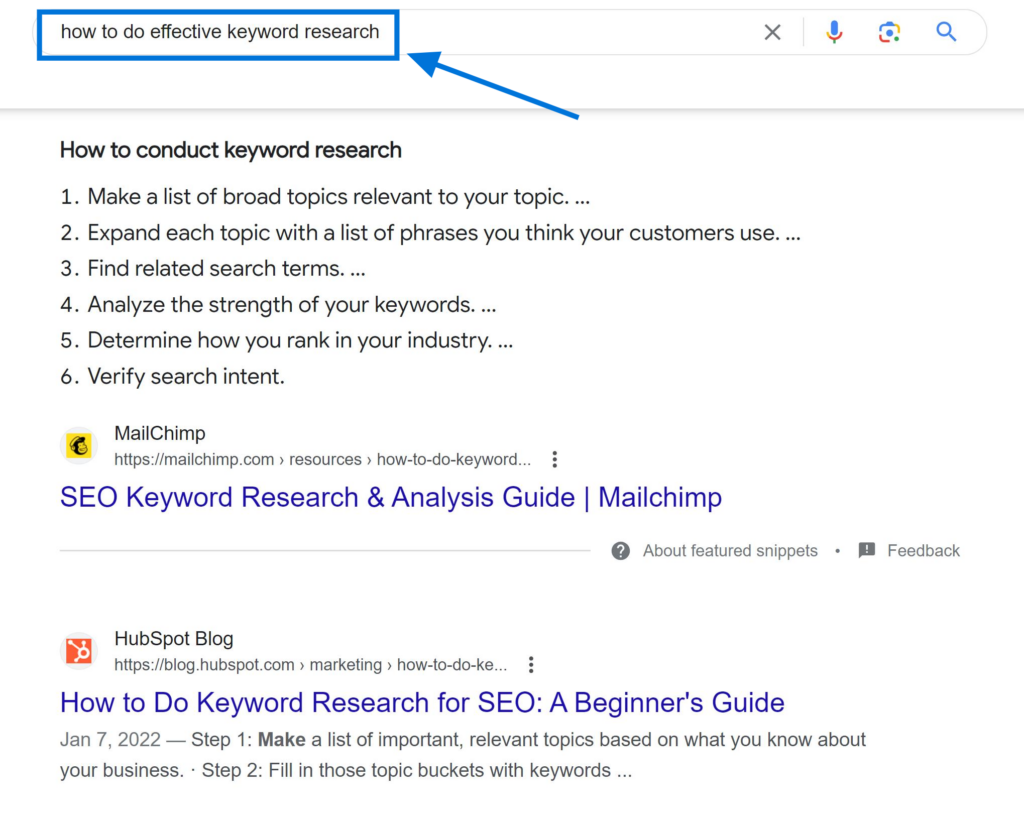
Another way to gather relevant keyword ideas is by looking at the related searches displayed at the bottom of search engine results pages (SERPs). These suggestions are closely related to your main keyword and can provide additional inspiration for content creation.
By incorporating these related keywords into your website or blog posts, you can increase your visibility in search results and attract more organic traffic.
In addition to leveraging Google’s suggestions, don’t overlook the power of YouTube for generating video content ideas.
YouTube’s auto-suggestions work similarly to Google’s, providing popular search queries as you type in the search bar. This feature allows you to tap into trending topics and create videos that address what people are actively searching for.
When brainstorming video ideas using YouTube, consider exploring different angles or approaches within your niche.
For example, if you run a food-related channel, try searching for terms like “easy recipes,” “food hacks,” or “meal prep ideas.” These suggestions can spark creative concepts that resonate with your audience.
Moreover, keep in mind that leveraging both Google and YouTube not only helps generate relevant keywords but also uncovers potential business opportunities.
By identifying popular search queries and trending topics, you can tailor your content to meet the demands of your target audience and position yourself as an authority in your niche.
Advanced Tips and Strategies for Effective Keyword Research
Conduct Thorough Competitor Analysis
To truly excel in keyword research, it is crucial to conduct a thorough analysis of your competitors.
By understanding what keywords they are targeting and ranking for, you can gain valuable insights into the market landscape and identify opportunities to outperform them.
Start by identifying your top competitors in the industry.
Analyze their websites, blog posts, and landing pages to uncover the keywords they are using. Tools like SEMrush or Ahrefs can provide comprehensive data on your competitors’ organic rankings, paid search campaigns, and backlinks.
Once you have gathered this information, focus on identifying gaps in their keyword strategy.
Look for keyword phrases that they may have missed but are relevant to your business. These could be long-tail keywords with high intent that have the potential to drive targeted traffic to your website.
Focus on Long-Tail Keywords with High Intent
While popular keywords may attract a large volume of search traffic, they often come with fierce competition.
To maximize your chances of ranking well and attracting qualified visitors, it is essential to focus on long-tail keywords with high intent.
Long-tail keywords are more specific phrases that typically consist of three or more words. They tend to have lower search volumes but higher conversion rates as they reflect a user’s specific needs or interests.
For example, instead of targeting “running shoes,” consider optimizing for “best lightweight running shoes for marathon training.”
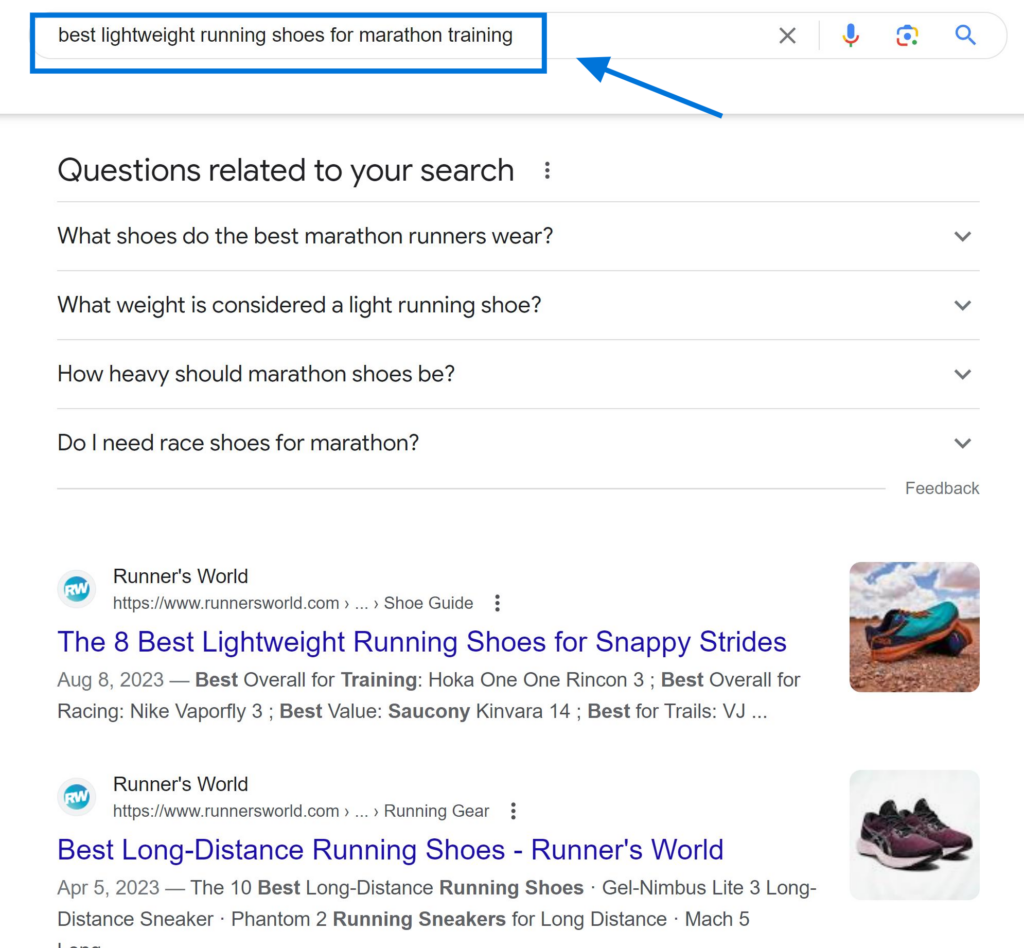
To discover relevant long-tail keywords, consider using tools like Google Trends or Google’s Keyword Planner. These resources will help you identify related phrases and terms that people are actively searching for.
Monitor Industry Trends Using Tools Like Google Trends
Staying up-to-date with industry trends is crucial. By monitoring shifts in consumer behavior and emerging topics within your niche, you can adapt your keyword strategy accordingly.
Google Trends is an invaluable tool for tracking the popularity of search terms over time. It allows you to compare the search volume of different keywords and identify any seasonal or cyclical patterns.
By leveraging this data, you can optimize your content around trending topics and capitalize on increased search interest.
Categorize Keywords Based on Relevance, Difficulty, and Volume
To streamline your keyword research process, it is essential to categorize keywords based on their content relevance, difficulty, and volume. This approach will help you prioritize your efforts and focus on the most valuable opportunities.
Consider creating keyword lists organized into different categories, such as high-relevance/low-difficulty, high-volume/high-difficulty, or long-tail keywords with moderate competition.
Exploring the Best Free Keyword Research Tools
Google Ads Keyword Planner
Google Ads Keyword Planner is an invaluable tool for anyone looking to enhance their keyword research.
With this free keyword research tool, you can discover a wide range of keyword ideas and determine their search volume.
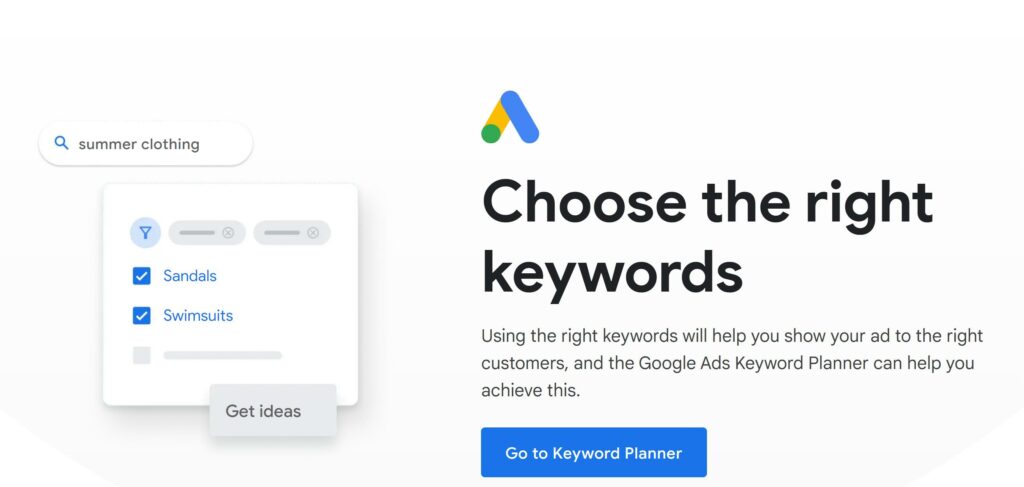
By entering a specific term or phrase related to your niche, Google Ads Keyword Planner provides you with a list of relevant keywords that people are actively searching for.
This tool allows you to gauge the popularity and competitiveness of each keyword, helping you make informed decisions about which ones to target.
Whether you’re optimizing your website’s content or planning an advertising campaign, Google Ads Keyword Planner assists in identifying the most effective keywords to boost your online presence.
Google Trends
Another essential tool in your arsenal is Google Trends. This powerful platform enables you to identify trending topics and seasonal keywords that are currently captivating audiences.
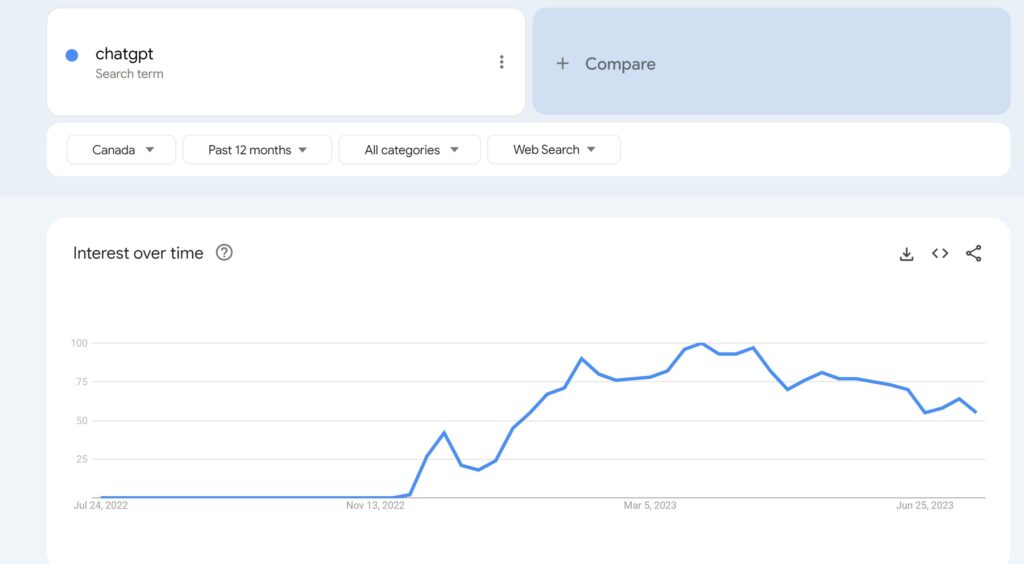
By analyzing search patterns over time, Google Trends reveals which topics are gaining traction and which ones are losing momentum.
With this information at hand, you can tailor your content strategy accordingly, ensuring that your website remains relevant and up-to-date.
For instance, if you notice an upward trend in searches for “summer fashion trends,” it would be wise to create content centered around this topic during the summer months.
Ubersuggest
Ubersuggest is a fantastic resource for finding long-tail keyword variations and generating content ideas. This free keyword research tool takes a seed keyword or phrase and provides a comprehensive list of related terms that users frequently search for.
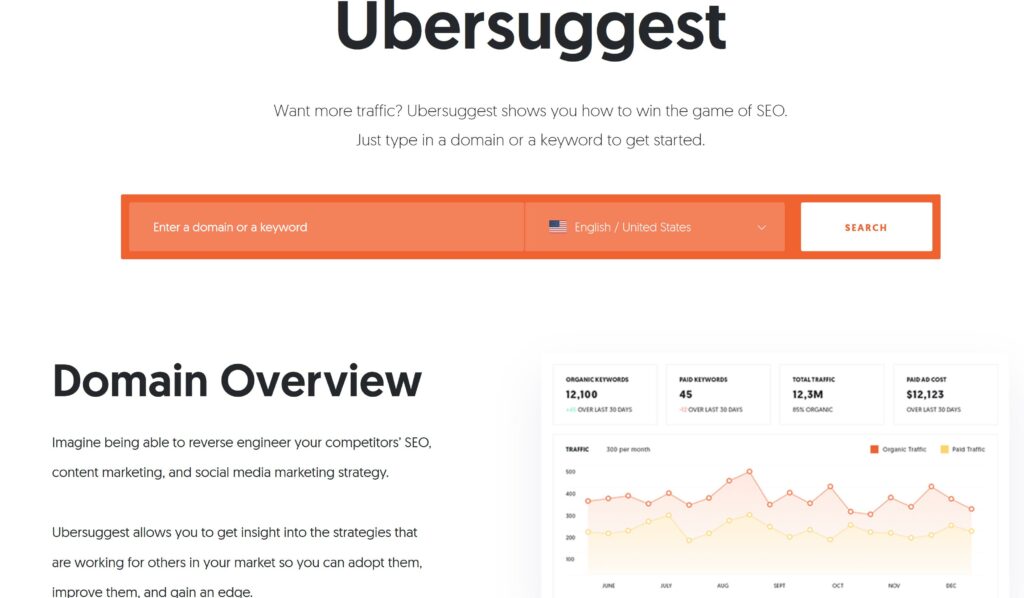
Moreover, Ubersuggest offers valuable insights into search volume, competition level, and cost-per-click (CPC) data for each keyword.
Armed with this knowledge, you can optimize your content by targeting less competitive long-tail keywords that still attract substantial traffic.
Answer the Public
If you’re seeking inspiration for creating compelling content based on popular questions people ask online, Answer the Public is here to help. This tool generates content ideas by aggregating commonly asked questions related to your keyword.
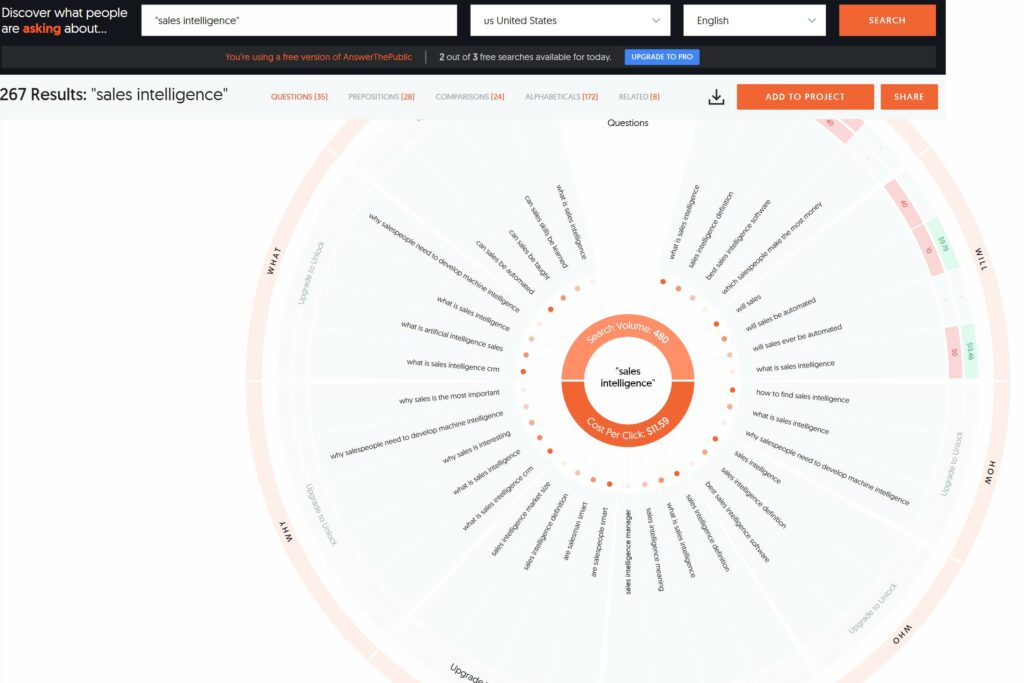
By understanding the questions people have, you can craft informative and engaging articles that address their specific needs.
Answer the Public provides you with a wealth of insights into what your target audience is curious about, allowing you to position yourself as an authority in your field.
Additional FAQs on Keyword Research
How Long Does It Take for Keyword Research to Show Results?
Keyword research is a fundamental part of SEO, but it’s important to note that results may not be immediate.
The time it takes for keyword research efforts to show results can vary depending on various factors such as competition level, website authority, content quality, and marketing efforts.
It’s crucial to be patient and consistent with your optimization strategies while monitoring progress regularly.
Can I Rely Solely on Free Keyword Research Tools?
Free keyword research tools can provide valuable insights; however, they often come with limitations in terms of data accuracy or access to advanced features.
To get a comprehensive understanding of keywords relevant to your business niche, consider investing in paid tools that offer more robust functionality and accurate data analysis.
Should I Focus Only On High-Volume Keywords?
While high-volume keywords may seem appealing, it’s essential to strike a balance between search volume and keyword relevance.
Targeting highly competitive keywords with massive search volumes can be challenging, especially for newer websites.
Consider optimizing for long-tail keywords that have lower search volumes but are more specific to your niche, as they can often result in higher conversion rates.
How Often Should I Update My Keyword Research?
Keyword research is an ongoing process that requires regular updates. As search trends change and new competitors enter the market, it’s crucial to stay up-to-date with the latest keyword opportunities.
Aim to review and update your keyword strategy periodically to ensure you’re targeting the most relevant and effective keywords for your business.
Can I Use the Same Keywords for All My Web Pages?
While some core keywords may be relevant across multiple web pages on your site, it’s generally recommended to optimize each page for a unique set of keywords.
By doing so, you can create targeted content that aligns with specific user intents and improves overall website visibility in search engine results pages (SERPs).
Tailoring your keyword strategy based on individual page content will help drive more qualified traffic to each page.
Conclusion: Key Takeaways from Keyword Research
Congratulations! You now have a solid understanding of keyword research and its importance for SEO.
By conducting thorough keyword research, you can unlock the potential to drive targeted organic traffic to your website and improve your search engine rankings.
Remember, effective keyword research starts with understanding the searcher’s intent.
Put yourself in the shoes of your target audience and think about what they would search for when looking for products or services like yours.
Analyzing competitors’ keyword rankings can also provide valuable insights into what is working well in your industry.
Don’t forget to leverage Google Search Console and tools like Google and YouTube Auto-suggest for additional keyword ideas.
As you dive deeper into your research, make use of advanced tips and strategies to uncover hidden opportunities.
Now that you’re armed with this knowledge, it’s time to put it into action!
Start implementing these keyword research techniques on your website and watch as your organic traffic grows.
Remember, consistency is key – keep refining and optimizing your keywords over time to stay ahead of the competition.
